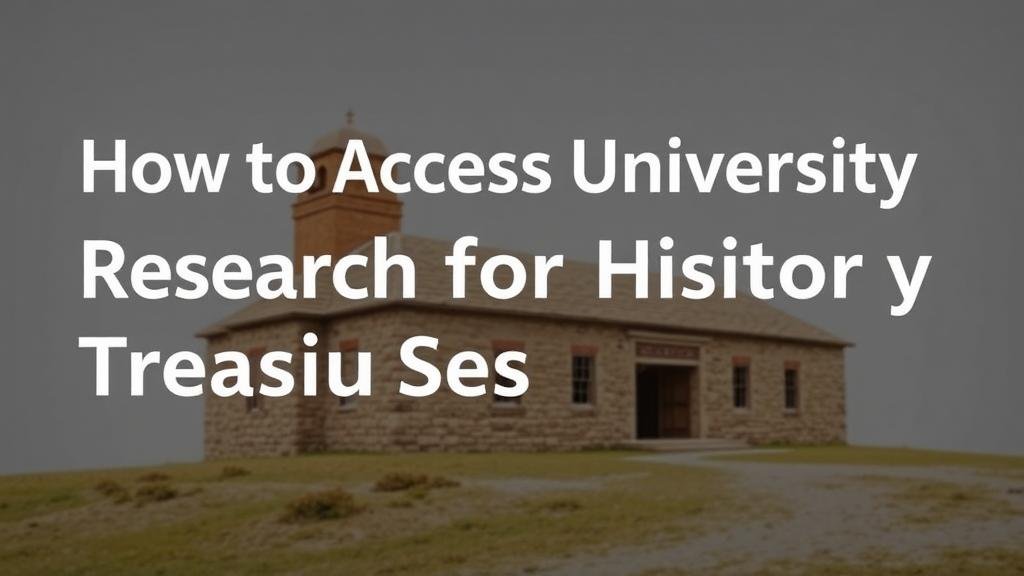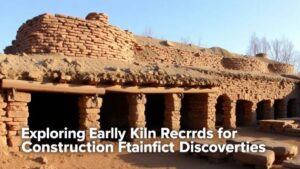How to Access University Research for Historic Treasure Site Information
How to Access University Research for Historic Treasure Site Information
Accessing university research for the purpose of gaining information on historic treasure sites is crucial for archaeologists, historians, and treasure hunters alike. This article will outline effective methods to obtain such research, as well as provide examples of how this information can be utilized in practical applications.
The Importance of University Research
Universities are repositories of extensive academic research that contribute significantly to our understanding of history. Many institutions house archives, databases, and faculty experts who specialize in historical studies. Such resources can provide invaluable insights into treasure sites, artifacts, and the historical contexts surrounding them.
How to Access University Research
There are several methods to access university-level research on historic treasure sites. These methods include utilizing academic databases, visiting university libraries, and engaging with faculty members.
Utilizing Academic Databases
Many universities offer access to a wide range of academic databases such as JSTOR, ProQuest, and Google Scholar. These platforms contain peer-reviewed articles, book chapters, and conference papers that can serve as primary sources of information on historic treasure sites.
- JSTOR: This digital library offers more than 12 million academic journal articles. For example, searching for ancient shipwrecks on JSTOR yields numerous articles related to the excavation and preservation of these historical treasures.
- ProQuest: This database includes dissertations and theses, which can provide cutting-edge research findings that may not be available elsewhere.
Visiting University Libraries
University libraries often maintain special collections and archives that contain rare manuscripts, maps, and documents related to historical sites. For example, the Library of Congress in Washington D.C. provides access to original documents that could assist in identifying potential treasure sites.
Engaging with Faculty Members
Faculty members specializing in archaeology, history, or anthropology can provide crucial guidance and insights. Reaching out via email or attending public lectures can foster relationships that may yield valuable information about ongoing research and excavation projects.
Case Studies of Successful Research Access
Several notable projects illustrate how university research has been instrumental in uncovering historic treasure sites.
- The U-534 Shipwreck: In the 1990s, a team from the University of Huddersfield collaborated with underwater archaeologists to survey and excavate the wreck of a German U-boat. Their research revealed valuable artifacts and provided insights into its role in World War II.
- The Oak Island Mystery: Researchers from several universities conducted studies on Oak Island in Nova Scotia, where numerous theories about buried treasure abound. Utilizing historical maps and records, they helped validate claims about the islands treasure-hunting lore.
Challenges and Considerations
Accessing university research is not without its challenges. Issues may arise concerning:
- Access Restrictions: Some academic resources may be limited to students or staff. Utilizing interlibrary loan systems or site-specific requests can mitigate this issue.
- Resource Variability: The quality and availability of historical research can vary significantly between institutions. Prioritizing reputable universities known for their archaeology or history departments may yield better results.
Actionable Takeaways
To successfully access university research for information on historic treasure sites, follow these steps:
- Use academic databases and search for relevant topics.
- Visit local university libraries to explore archives and collections.
- Network with scholars and faculty members to gain insights into current research projects.
By taking these actionable steps, individuals interested in historic treasure sites can effectively use university research to enhance their understanding and discoveries in this fascinating field.



